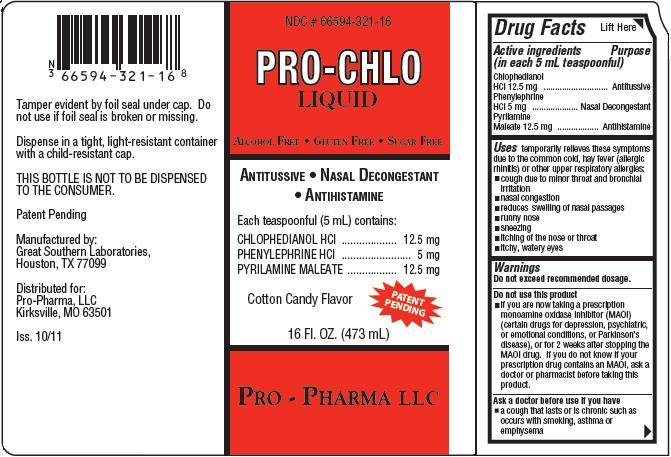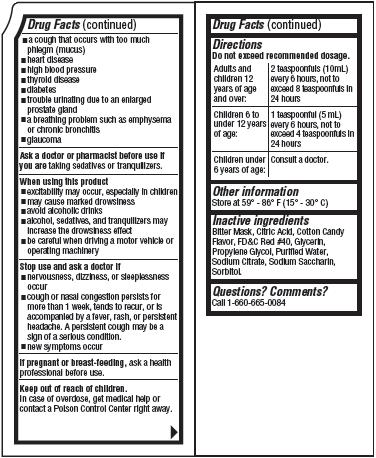Pro-chlo | Chlophedianol Hydrochloride, Phenylephrine Hydrochloride, Pyrilamine Maleate Liquid while Breastfeeding

What is Pro-chlo | Chlophedianol Hydrochloride, Phenylephrine Hydrochloride, Pyrilamine Maleate Liquid ?
Brief: Antitussive Nasal Decongestant Antihistamine
Can I use Pro-chlo | Chlophedianol Hydrochloride, Phenylephrine Hydrochloride, Pyrilamine Maleate Liquid while breastfeeding?
Pro-chlo | Chlophedianol Hydrochloride, Phenylephrine Hydrochloride, Pyrilamine Maleate Liquid Breastfeeding Analsys
Phenylephrine hydrochloride while Breastfeeding
Low RiskCAS Number: 59-42-7
Used on topical decongestant solutions for nose drops at low concentration. 10% midriatic eye drops are available. Because low concentration is used on nose and ophtalmic drops a significant excretion into breast milk is unlikely. Low oral biodisponibility minimizes any risk of harmful effect in the infant. Authorized for nasal or ophtalmic use on children aged younger than 1 year. Although on latest update relevant data on breastfeeding was not found it is considered to be safe when minimal dose is used. Avoid excessive or long term use. A related drug Pseudoephedrine can inhibit milk production. It would be advisable to press on the lachrimal sac to minimize absorption.
Pyrilamine maleate while Breastfeeding
Low RiskCAS Number: 59-33-6

First generation antihistamine with sedative and important antimuscarinic effects. Such remarkable anticholinergic effect may inhibit lactation. At latest update no published data on excretion into breast milk were found. Drug with poor scientific support which is marketed in very few countries.Marketed as part of in many “at the counter” compounds in association poliasociación with expectorants, bronchodilators, antitussives, etc. Avoid the use of drug associations mostly while breastfeeding. Although occasional and moderate use during lactation would probably not pose a serious risk, a safer alternative should be preferred until more data on this drug related to breastfeeding is available. Topically used on the skin, it would not represent a risk during breastfeeding. Avoid applying it on the breast. Assess the child for drowsiness and inappropriate infant feeding.It is not recommended bed-sharing with your baby if you are on this medication.
Pro-chlo | Chlophedianol Hydrochloride, Phenylephrine Hydrochloride, Pyrilamine Maleate Liquid Breastfeeding Analsys - 2
Phenylephrine hydrochloride while Breastfeeding
CAS Number: 59-42-7
The oral bioavailability of phenylephrine is only about 40%,[1] so the drug is unlikely to reach the infant in large amounts. However, intravenous or oral administration of phenylephrine might decrease milk production. Because no information is available on the use of oral phenylephrine during breastfeeding, an alternate drug may be preferred, especially while nursing a newborn or preterm infant.Phenylephrine nasal spray or ophthalmic drops are less likely to decrease lactation. To substantially diminish the effect of the drug after using eye drops, place pressure over the tear duct by the corner of the eye for 1 minute or more, then remove the excess solution with an absorbent tissue.
I am nursing mother and I have already used Pro-chlo | Chlophedianol Hydrochloride, Phenylephrine Hydrochloride, Pyrilamine Maleate Liquid, what should I do?
Not much study has been done on safety of Pro-chlo | Chlophedianol Hydrochloride, Phenylephrine Hydrochloride, Pyrilamine Maleate Liquid in breastfeeding and its ingredients. Even we do not have complete information about usage of Pro-chlo | Chlophedianol Hydrochloride, Phenylephrine Hydrochloride, Pyrilamine Maleate Liquid in breastfeeding so at this point a trained medical professional could be your best bet. If you observe anything abnormal with your baby please contact 911.
My doctor has prescribed me Pro-chlo | Chlophedianol Hydrochloride, Phenylephrine Hydrochloride, Pyrilamine Maleate Liquid, what should I do?
If your doctor considers Pro-chlo | Chlophedianol Hydrochloride, Phenylephrine Hydrochloride, Pyrilamine Maleate Liquid safe enough to prescribe for you that means its benefits should outweigh its known risks for you.
If I am using Pro-chlo | Chlophedianol Hydrochloride, Phenylephrine Hydrochloride, Pyrilamine Maleate Liquid, will my baby need extra monitoring?
We are not Sure, Please check with your healthcare provider or doctor.
Who can I talk to if I have questions about usage of Pro-chlo | Chlophedianol Hydrochloride, Phenylephrine Hydrochloride, Pyrilamine Maleate Liquid in breastfeeding?
US
National Womens Health and Breastfeeding Helpline: 800-994-9662 (TDD 888-220-5446) 9 a.m. and 6 p.m. ET, Monday through Friday
UK
National Breastfeeding Helpline: 0300-100-0212 9.30am to 9.30pm, daily
Association of Breastfeeding Mothers: 0300-330-5453
La Leche League: 0345-120-2918
The Breastfeeding Network supporter line in Bengali and Sylheti: 0300-456-2421
National Childbirth Trust (NCT): 0300-330-0700
Australia
National Breastfeeding Helpline: 1800-686-268 24 hours a day, 7 days a week
Canada
Telehealth Ontario for breastfeeding: 1-866-797-0000 24 hours a day, 7 days a week
